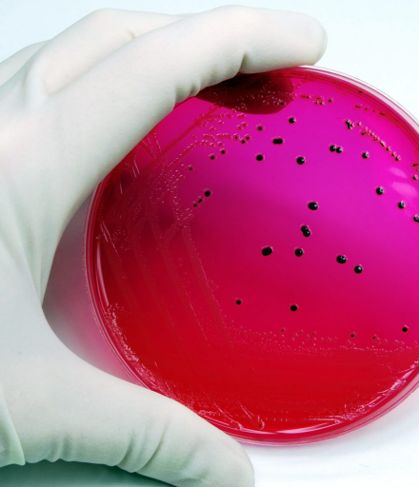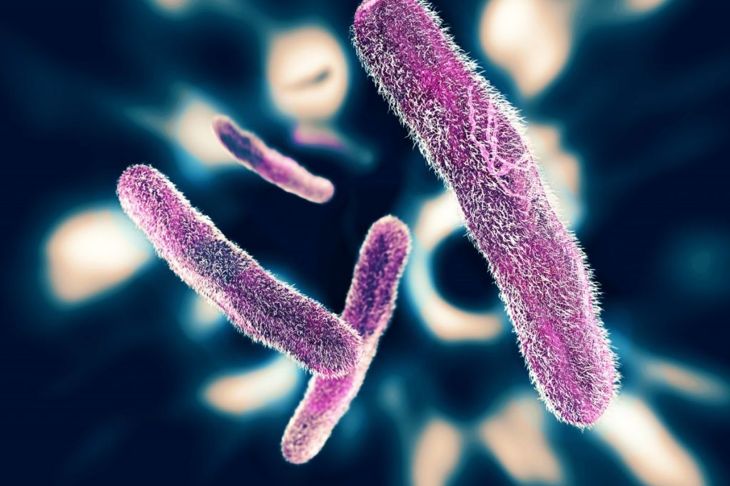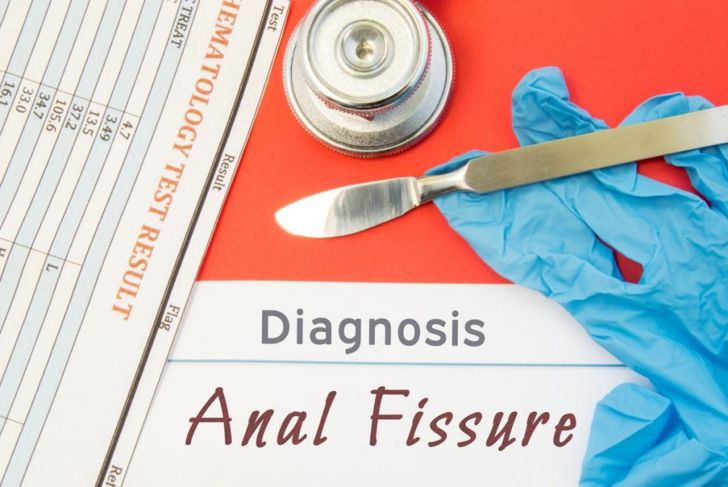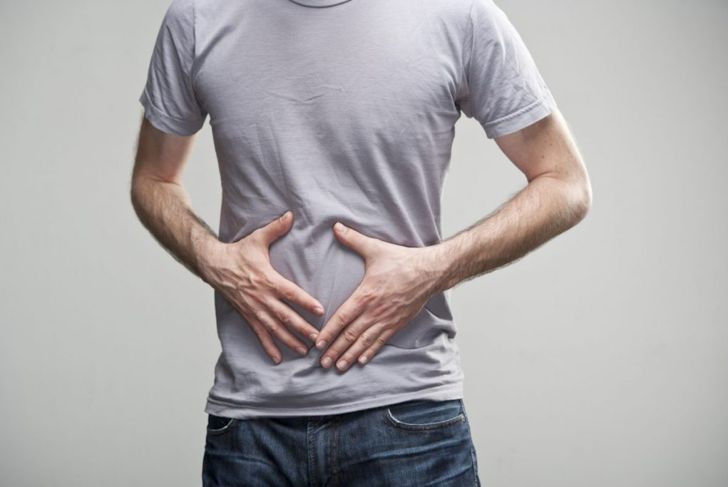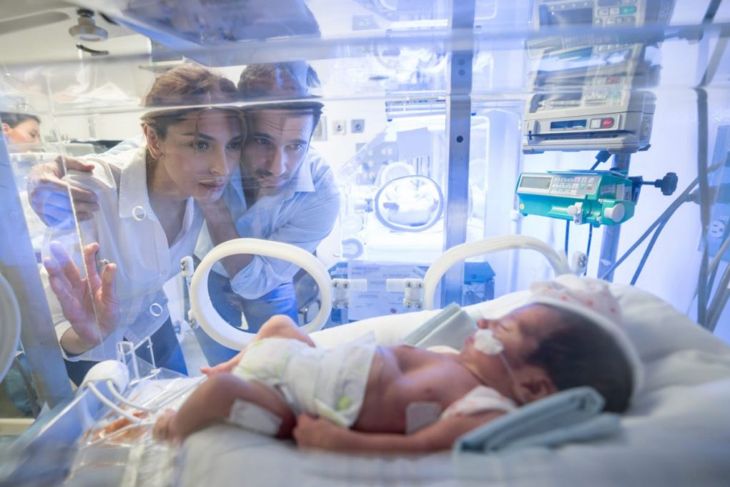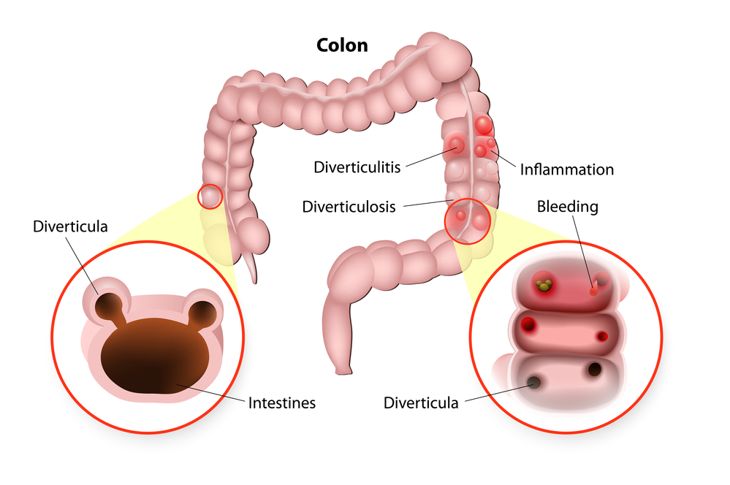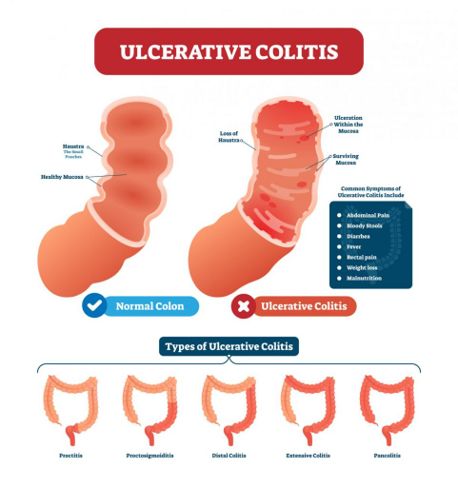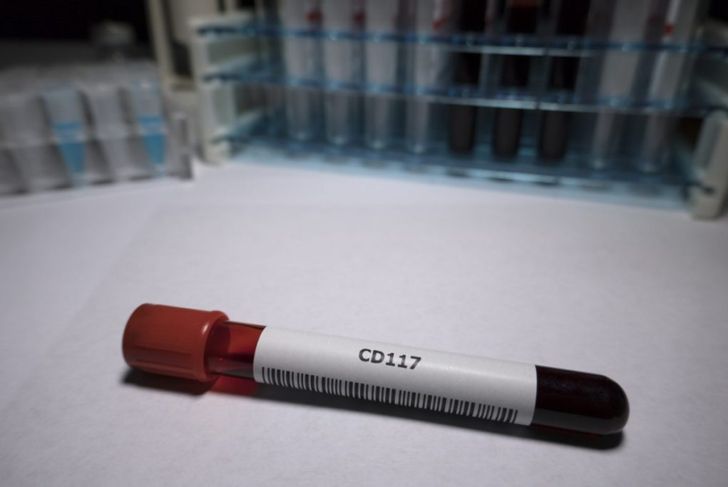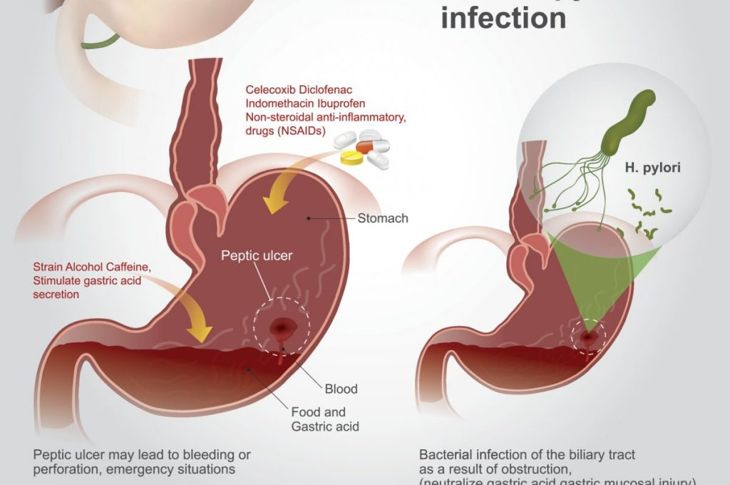Hematochezia occurs when fresh blood passes through the rectum. This form of bloody stool should not be confused with melena, where feces is dark and tarry due to bleeding in the upper intestines. Hematochezia usually comes from the lower intestines, but can also derive from spontaneous bleeding anywhere in the GI tract. Though hematochezia can be frightening, in many cases the cause is benign and the issue will resolve itself.
Intense Exercise
Mesenteric arteries supply blood to most of the gastrointestinal tract, specifically the small bowel and colon. During intense exercise, athletes may experience hypohydration or uncompensated body water loss. This interrupts mesenteric blood flow, leading to rectal bleeding. This cause is more prevalent among distance runners, and though people should seek medical attention if it occurs, athletes can also train their stomachs by altering their carbohydrate and fluid intake before and during races.
Salmonellosis
Eating foods, such as meat or milk, that have been infected by the salmonella bacteria cause salmonellosis. Symptoms such as fever and abdominal cramps manifest within a few hours and can last for days. This condition is most serious in children. Salmonellosis can cause colonic ulcers or perforations, resulting in bloody, watery diarrhea. Once diagnosed, treatments include antibiotics and fluids to stem dehydration. Doctors may test stool samples to make sure they are negative, which indicates the bacteria has been eradicated.
Shigellosis
Shigellosis is an intestinal infection caused by the shigella bacteria. It mostly occurs in children five years or younger and spreads during diaper changes and toilet training. However, anyone ingesting contaminated food or swimming in sewage-infected water is also at risk. Diarrhea is the primary symptom, but rectal prolapse is a complication that can cause hematochezia. Prolapse is the result of straining during bowel movements, which causes the lining of the rectum to pass through the anus. Shigellosis usually runs its course in a few days, but for serious infections, doctors may prescribe antibiotics, along with fluid and salt replacement.
Anal Fissures
An anal fissure is a small tear in the lining of the anal canal. One cause is stretching of the anal canal from difficult or frequent bowel movements; trauma to the lining of the anus is another. The result is uncomfortable bowel movements with bright red blood in the stool or when wiping. A high-fiber diet and stool softeners help with the healing process, as do topical medications. More chronic cases may require surgery.
Esophageal Varices
One complication of liver diseases such as cirrhosis is esophageal varices. Portal hypertension causes the veins of the first three parts of the stomach to develop varicose veins that rupture, resulting in gastrointestinal bleeding. Doctors use endoscopy to identify the root of the bleeding, but those with liver disease are more prone to bleeding disorders. Treating esophageal varies depending on the type of liver disease and the stage. While this type of bleeding stops on its own in some cases, the majority are quite severe and often require blood transfusions and surgery.
Necrotizing Enterocolitis
Necrotizing enterocolitis, NEC, is a disease that mostly affects premature infants weighing less than 3.5 pounds. Bacteria invade the intestines, and because the organs are weakened by too little oxygen or blood, this results in inflammation and necrosis. This leads to food sitting in the stomach without moving through the intestines, as well as bloating and bloody bowel movements. Treating NEC involves antibiotics and intravenous fluids after ensuring the stomach is empty of all food and liquid. More severe cases require surgery to remove necrotic parts of the intestine or bowel.
Diverticulosis
Diverticula are sacs that form in the gastrointestinal wall, which can become inflamed, causing diverticulosis. These pouches typically occur in the sigmoid colon, which is close to the rectum and anus. The exact cause is unknown, though it is a common disease in people over 60 years of age. If blood vessels rupture around one of the sacs, hematochezia can be a complication. Treatments range from a low-fiber diet and antibiotics to a temporary colostomy.
Ulcerative Colitis
Ulcerative colitis is a type of irritable bowel disease, inflammation in the colon’s lining and the rectum that causes small ulcers and abscesses. When this disease flares up, hematochezia and melena are common symptoms. In some cases, too much bright red bloody stool may lead to anemia. Doctors recommend hydration, a low-fiber-high-protein diet, and corticosteroids to manage the disease. In more severe cases, removal of the large intestine and rectum may be necessary to eliminate the chances of colon cancer.
GISTs
Gastrointestinal Stromal Tumors, GISTs, are slow-growing small tumors in the GI tract. Depending on their location and size, they won’t cause symptoms. They are fragile masses, however, so if they burst in the large intestine, hematochezia often develops quickly. With this type of tumor, doctors investigate the stage of the mass (the tumors may be malignant or benign) and the possibility of performing a resection or shrinking it with targeted therapy, first.
Peptic Ulcers
Peptic ulcers are open sores on the stomach lining or small intestine that are usually caused by the Heliobacter pylori bacteria. Common symptoms include burning stomach pain and nausea. In rare cases, the arterial area in the upper intestines hemorrhages, causing acute bleeding that shows up in the stool. Doctors may prescribe acid reducers and other protectants to help the ulcer heal.

 Home
Home Health
Health Diet & Nutrition
Diet & Nutrition Living Well
Living Well More
More
